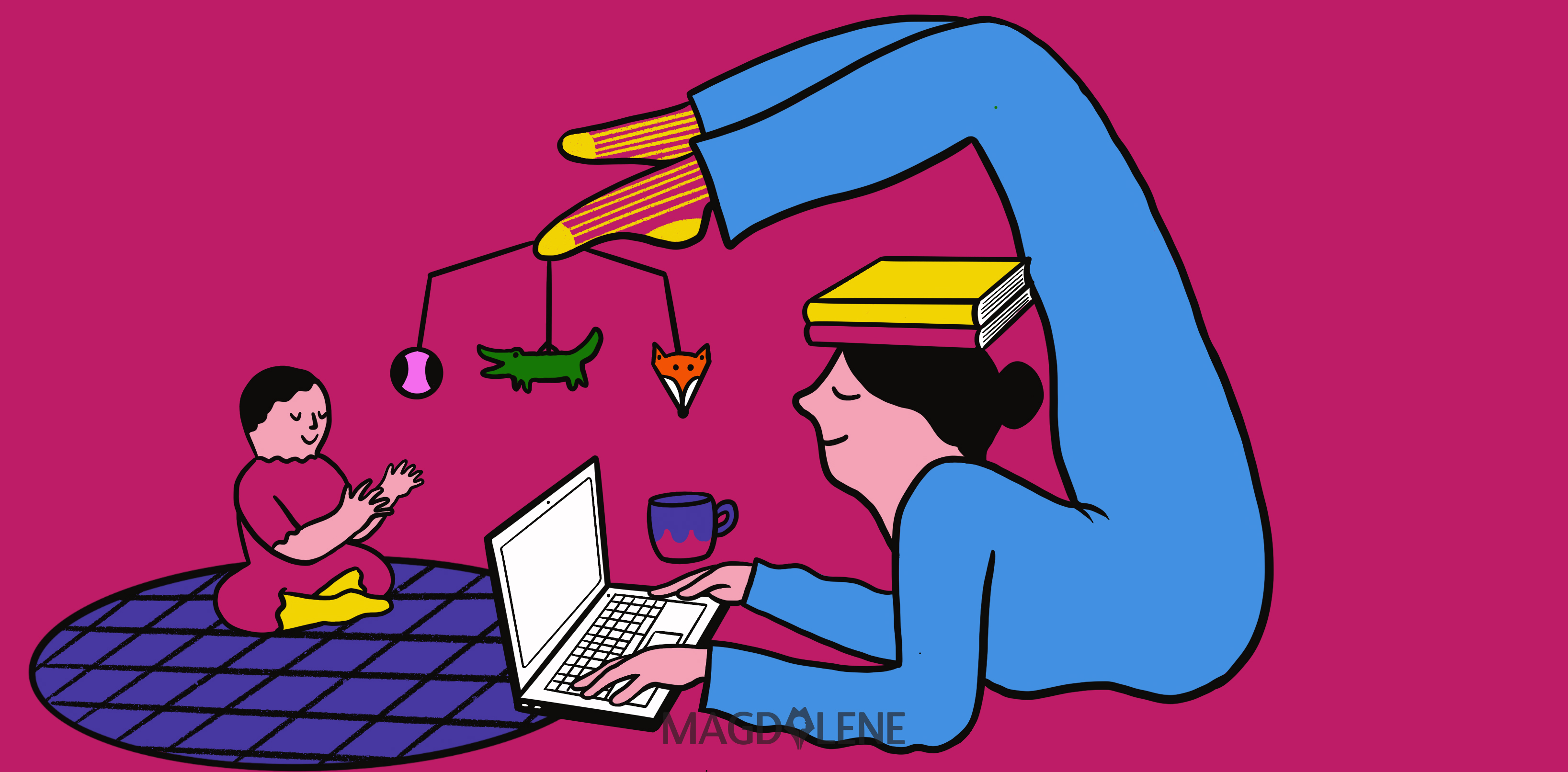“After I finished work, I have to take care of housework,” said Gina, a 34-year-old civil servant. “There is no rest time. My husband got laid off, so he is with the kids at home. Sometimes I ask him to help clean the house, but only if he wants to, I don't force him."
Gina is one of the women I interviewed for my recent study into parental involvement and division of household labor during the pandemic. She spends 7 hours a day on her job, 3.5 hours on her children’s online school-related activities, and 4.5 hours in domestic work. Sadly, she is not alone in her daily struggle.
Since the Indonesian government issued a school closure policy to prevent the spread of COVID-19 in March 2020, all educational activities have turned online. “Distance learning” has placed new demands on parents’ time and resources. On the one hand, they have to continue to earn a living, which for many have been affected by the pandemic, but on the other hand, the demands on their time and resources for unpaid work including supporting their children’s education were increasing.
Women are feeling this burden the most. Even before the pandemic, working women in Indonesia (as in the rest of the world) had to bear a double burden, doing their paid work as their “first shift”, before tackling housework on their “second shift.” The pandemic and the resulting remote work measures mean they now have additional “third shift” to organize their children’s education online.
For my thesis, I researched the changing schedules of seven families in which both parents have paid jobs in Batu, East Java, between March and May 2021. My study found that mothers now spent up to 4.5 hours per day to support their children’s education during the pandemic, up from 1-1.5 hours in the normal pre-pandemic time.
On the other hand, fathers who have seen a decrease in their paid work hours due to layoffs or other pandemic-induced economic conditions, did not experience an increase in their hours of involvement in their children’s online school activities or domestic work.
It’s not just the number of hours spent on school-related activities that has increased. The range of activities that families must negotiate has also widened with the start of online schooling. Parents have to organize their daily routine around the dynamic schedules of remote schooling. Before the pandemic, families had a routine to manage their children's educational activities, and much of those activities were conducted at school and under the supervision of teachers. Now these were conducted at home and had to be organized and supervised by parents, mostly mothers.
Women and Digital Challenges
An important aspect of remote schooling is the reliance on digital technologies for attending classes, submitting assignments, and communicating with teachers using WhatsApp groups. This, too, shaped the experience of parents in general and mothers in Batu.
While online schooling relied on digital devices and connectivity, the infrastructure was not equally available to all families, especially in the middle of an economic downturn caused by COVID-19. Families with low incomes managed online schooling by devising several strategies, such as buying a smartphone on loan, sharing phones within the family, buying internet packs to supplement the “learning quota” provided by the government and riding a public wi-fi network.
For instance, Sarmi, one of the mothers from another family we studied, did not own a smartphone, although she was earning the same amount of income as her husband during the pandemic.
Despite their economic circumstances, the family purchased a smartphone on debt during the pandemic to enable their younger daughter Mischa to participate in remote schooling. Interestingly, this phone was bought for the older daughter, Agnes. Sarmi ended up sharing the smartphone with her daughter to stay involved in Mischa’s education, accompanying him during classes and being a member of his school Whatsapp chat group with teachers and other parents (who were, again, mostly mothers).
Furthermore, because fewer of the mothers owned or used digital devices, their digital literacy level was lower than that of the fathers, creating further challenge to mothers involved in the remote schooling. Since the mothers we observed had not mastered using desktop computers or laptops, they relied on smartphones for their children's educational needs.
As for the fathers, although they tend to have higher digital literacy level, they were less involved in distance learning. In fact, even when mothers looked for strategies to master technologies for online schools, they sought advice from teachers or their elder children rather than their husbands.
"Well, I'm the one who makes a living, so my job is only to make a living. Other duties,like teaching children or taking care of the house, are the mother’s,"
While the higher involvement of women in housework and care work was well-recognized even prior to the pandemic, our study highlights the different ways in which the introduction of remote schooling further (and disproportionately) increases the woman’s burden in the family. This study complements research from other parts of the globe, highlighting gender inequalities in families during the pandemic. It suggests that neither the need for increased parental involvement in online schooling, the decrease in household finances, (including a decrease in the father’s income and, the relative stability of maternal income in some cases), nor even an increase in the father’s time at home, lead to an increase in the role of fathers in unpaid work.
"Well, I'm the one who makes a living, so my job is only to make a living. Other duties,like teaching children or taking care of the house, are the mother’s," said Thomas, Sarmi’s husband.
These results give us pause in view of potential extension of distance education policies. Given prevalent gender attitudes and the increasingly significant burden the mothers have had to bear, leading to physical and mental health issues, there is an urgent need for educators, governments, and parents alike to re-evaluate the costs of educating our children in this manner.
Ilustrasi oleh Karina Tungari







Comments